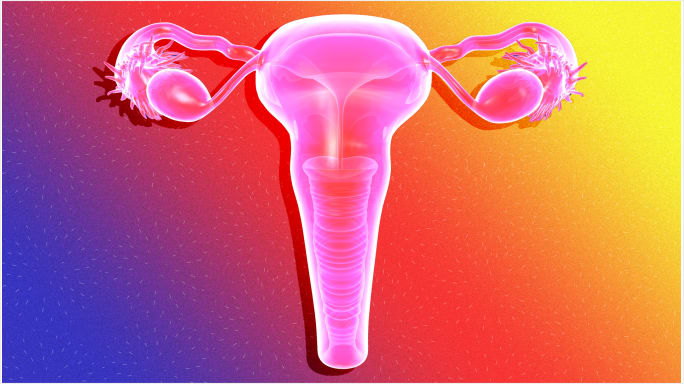Inactive thyroid can’t hurt baby development, according to a new study
One in 8 women will have a thyroid disorder during her lifetime — a condition also known to emerge during pregnancy.
Up until now, however, not treating mildly low thyroid was considered a no-no due to possible threats to the pregnancy and the child. But a new study by the National Institutes of Health shows that not treating the condition could be the way to go.
Low thyroid function during pregnancy had formerly been linked to compromised neurological development in the fetus as well as higher risks for preterm birth and miscarriage. Other studies showed that having mildly low thyroid function — also known as subclinical hypothyroidism — may affect the baby’s cognitive development and raise the chances of pregnancy and birth complications.
The new study in the New England Journal of Medicine throws that school of thought out the window.
“Our results do not support routine thyroid screening in pregnancy since treatment did not improve maternal or infant outcomes,” Dr. Uma Reddy with the NIH’s Eunice Kennedy Shriver National Institute of Child Health and Human Development pregnancy and perinatology branch and study author, said in a statement.
Reddy told SheKnows that the study didn’t look at women with hypothyroidism, which is something that women should seek treatment for when pregnant. The study’s results shouldn’t be applied to women with hypothyroidism, as they weren’t included in the study, she added.
Pregnant women need enough thyroid hormone to support themselves and the fetus. If a woman’s thyroid is already overtaxed upon getting pregnant, her thyroid levels may decline and she could develop a thyroid issue while she is expecting, the American Association of Clinical Endocrinologists reports.
Can untreated low thyroid hurt your baby?
Researchers looked at the thyroid levels of more than 97,000 women between October 2006 and October 2009. The women were fewer than 20 weeks pregnant. Scientists screened them for thyroid-stimulating hormone and thyroid hormone thyroxine, also called T4, levels. A mildly high thyroid-stimulating hormone level and normal T4 levels indicate subclinical hypothyroidism; if you have low maternal T4 and normal thyroid-stimulating hormone levels, it indicates hypothyroxinemia (the type of thyroid issue that is common in pregnant women).
As a result, 677 women who had subclinical hypothyroidism (elevated thyroid-stimulating hormone, normal T4) were either put on levothyroxine (synthetic T4) or a placebo. And 526 women with hypothyroxinemia (normal thyroid-stimulating hormone, low T4) were randomly put on the medication or a placebo. Children born to women in all of the groups were tested for IQ and seen by child-development specialists until they were 5 years old.
The research team found no differences in cognitive functioning among children of subclinical hypothyroidism mothers who received medications and those who were not treated. Additionally, there were no differences in rates of stillbirth, miscarriage, preterm birth and gestational diabetes between both groups.
Babies are safe, experts say
The results confirm those of a 2012 trial that screened about 22,000 women and followed their offspring until the age of 3. Dr. John H. Lazarus, a researcher on that trial and endocrinology professor at Cardiff University in Wales, told SheKnows that the latest study’s results don’t mean women do not need thyroid screening during early pregnancy.
Additionally, more specific studies on how a mother’s thyroid function impacts the child’s developing brain are needed.
“Mothers should be told that the current knowledge indicates no reduction in IQ in children born to mothers with mild thyroid failure,” he said. “I believe the question of thyroid screening is still to be debated.”
Jury’s still out on testing
Dr. Serena Chen, an infertility specialist in New Jersey, told SheKnows that the topic of prenatal thyroid testing and treatment is quite controversial. She said that treatment for infertility patients who have suffered miscarriages might be beneficial while low-risk first pregnancies may be OK to skip treatment. The jury is still out, though, she said.
While it’s common for women to develop thyroid issues during pregnancy, the condition may not normalize after delivery, Chen notes. In fact, a woman with thyroid problems during pregnancy may have a higher risk for thyroid dysfunction over her lifetime. All women over 40 should have thyroid-stimulating hormone levels checked annually, Chen recommends.
Women with subclinical hypothyroidism, which Chen said involves having a thyroid-stimulating hormone level between 2.6 and 4.5, has been shown in some studies to be associated with higher rates of miscarriage. Using thyroid hormone medications to lower to thyroid-stimulating hormone seems to eliminate the “excess risk,” though it is controversial and not shown in all studies.
What should your numbers be? As of 2017, most U.S. laboratories say the normal thyroid-stimulating hormone range is between 0.5 to 4 or 5. Others say the cutoff should be 3, which would increase the number of people with thyroid problems.
The American College of Obstetricians and Gynecologists does not recommend universal screening, though other medical experts say it’s worth it. Need help deciding whether you should be tested or assistance interpreting your results? Talk to your doctor.
Originally published on SheKnows.




comments